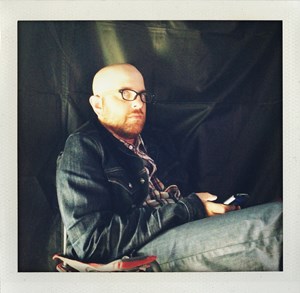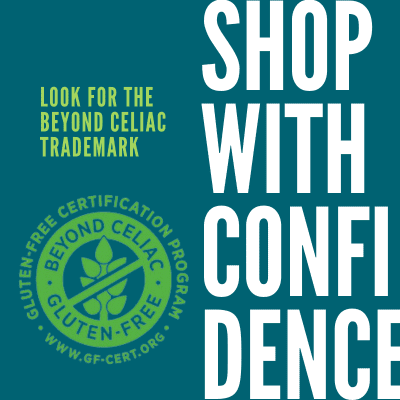Behind the Scenes of the Filming of Seriously, Celiac Disease
Behind the Scenes: Q&A with the Writer of “Seriously, Celiac Disease”
As a writer and creative director, I am part of the Wondros family and create content and stories for videos, short films, commercials and documentaries.
Question 1
Q. Can you tell us a little bit about yourself?
A. I have been in the advertising business for close to 20 years, with the last decade focused primarily on health and wellness. I live in Park Slope, Brooklyn with my wife and daughter.

Stuart Fink
Question 2
Q. How long have you been working in the film industry?
A. For the last several years, I have devoted my spare time to writing screenplays. As of now, three of those screenplays have been optioned and one aims to begin production late this year.
Question 3
Q. Why were you interested in working on a project related to celiac disease?
A. My cousin, Izzy, was diagnosed with celiac disease at a young age and the challenges she and her family have faced inspired me to motivate people to get tested and have a meaningful discussion with their doctor and family members.
Question 4
Q. Beyond Celiac
is confident that the research used to drive the video creation will help increase celiac disease diagnoses through family member testing. How does it feel to be part of something that could drive down the 83% undiagnosed rate?
A. Anytime “you” can be a part of something that could lead to healthier lives, an improved standard of living, empowerment, understanding…that’s what it’s all about.
Question 5
Q. As the writer of the video script, can you tell us how and why you incorporated the findings from the project’s research phase into the script and how you ultimately came up with the idea for Seriously, Celiac Disease?
The research conducted prior to me joining the project was so rich and insightful that rather than simply mine it for nuggets, I wanted to use it all, or at least as much as I could. While I know that Beyond Celiac has plans to more fully share the research findings, essentially we learned that the majority of people don’t take celiac disease seriously, even those already diagnosed. For them, it’s an unconscious barrier. As a result, the way conversations between relatives have been approached isn’t effective. Relatives need that one-on-one, in-person conversation to really understand their risk and the severity of celiac disease.
The goal of this video was to teach those diagnosed the importance of communicating about celiac disease in the right way and to motivate those the diagnosed with celiac disease to have this meaningful conversation with their family members. At a certain point in the creative process, I just decided that that’s what we should show. An actual conversation. Rather than simply explain, show. And because there is so much confusion and misinformation about celiac disease, the idea of Seriously, Celiac Disease made a lot of sense. It was a way of acknowledging the skepticism and/or disbelief while reeducating at the same time.
Question 6
Q. Did you learn something about celiac disease and family testing that you didn’t know before?
A. Honestly, I’m not entirely sure I knew it was hereditary. And if I did, I certainly didn’t know that all of my cousin’s blood relatives should request a blood test. After the experience of working on this video, I am considering asking my doctor for a blood test, as well as asking my daughter’s pediatrician to test her as well.
Question 7
Q. Is there anything you’d like to tell the community about the script writing process and final product?
A. Combined with its complementary educational materials, this video is a tool. It’s a tool to open a dialogue. I would hope that those diagnosed with celiac disease watch the video and then make time to sit down, face-to-face, and have a real conversation with their biological relatives. I would also add that – in my twenty years in the business, the last ten, as mentioned before, in the health and wellness space – it’s refreshing and inspiring to see a team such as the NCFA team, so passionate and empathetic to those living with this disease. This is their life’s work and I was honored to be a part of it.


